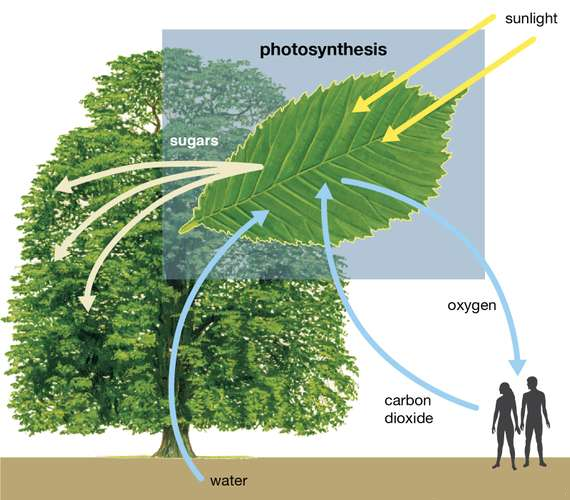Science & Technology
BBX11 Gene: Greening of Plants
- 26 Dec 2020
- 5 min read
Why in News
Recently, the Indian Institute of Science Education and Research (IISER) has recognized the BBX11 gene that facilitates the greening of crops.
Key Points
- About BBX11 Gene:
- The researchers discovered a mechanism where two proteins oppositely regulate the BBX11 gene to maintain optimum ranges of BBX11.
- BBX11 plays a vital role in regulation of the amount of protochlorophyllide synthesized by the plant.
- Protochlorophyllide is an intermediate in the synthesis of chlorophyll.
- If it is less, plants are unable to efficiently green in order to harvest sunlight and if the amount of protochlorophyllide is more, then photobleaching occurs.
- Photobleaching is loss of colour by a pigment.
- The quantity of protochlorophyllide synthesised needs to be proportional to the variety of enzymes available to transform them to chlorophyll.
- It is very important to regulate the amount of protochlorophyllide synthesized by the plant.
- Synthesis of Chlorophyll:
- Chlorophyll is the green pigment in plants, algae, and cyanobacteria that absorbs sunlight and uses its energy to synthesise carbohydrates from Carbon-di-Oxide (CO2) and water.
- The synthesis of chlorophyll in plants is a lengthy, multi-step process.
- When a seedling emerges from under the soil it must quickly synthesise chlorophyll to start supporting its own growth.
- In order to facilitate quick synthesis of chlorophyll, plants make a precursor of chlorophyll called ‘protochlorophyllide’ in the dark, which glows red in blue light.
- As soon as the plant comes out into the light from under the soil, light-dependent enzymes convert protochlorophyllide to chlorophyll.
- Chlorophyll is the green pigment in plants, algae, and cyanobacteria that absorbs sunlight and uses its energy to synthesise carbohydrates from Carbon-di-Oxide (CO2) and water.
- Implications:
- This discovery has many implications within the agriculture sector in tropical nations like India and can assist present results in optimising plant progress in frequently changing weather conditions.
- Due to the quickly altering weather conditions, farmers in a number of states in India, particularly in Maharashtra, are struggling with large losses in crop yields.
- This often leads to severe distress among the farming community as indicated by the high number of farmer suicides in Maharashtra for the past several years.
- Major Reasons for Crop Failure: Severe drought, high temperature and high light.
- Young seedlings emerging out of the soil are extremely sensitive to high irradiance of light. This study can provide leads to optimise plant growth under these stressful conditions.
- This discovery has many implications within the agriculture sector in tropical nations like India and can assist present results in optimising plant progress in frequently changing weather conditions.
Photosynthesis
- Photosynthesis is the process by which green plants and certain other organisms transform light energy into chemical energy.
- During photosynthesis in green plants, light energy is captured and used to convert water, carbon dioxide, and minerals into oxygen and energy-rich organic compounds.

- Factors Affecting Photosynthesis: Photosynthesis is under the influence of several factors, both internal (plant) and external.
- Internal: Number, size, age and orientation of leaves, mesophyll cells and chloroplasts, internal CO2 concentration and the amount of chlorophyll.
- External: Availability of sunlight, temperature, CO2 concentration and water.
- For example, despite the presence of a green leaf and optimal light and CO2 conditions, the plant may not photosynthesise if the temperature is very low.
- Importance:
- It would be impossible to overestimate the importance of photosynthesis in the maintenance of life on Earth.
- If photosynthesis ceased, there would soon be little food or other organic matter on Earth.
- Most organisms would disappear, and in time Earth’s atmosphere would become nearly devoid of gaseous oxygen.
- Energy produced by photosynthesis carried out by plants millions of years ago is responsible for the fossil fuels (i.e., coal, oil, and gas) that power industrial society.





